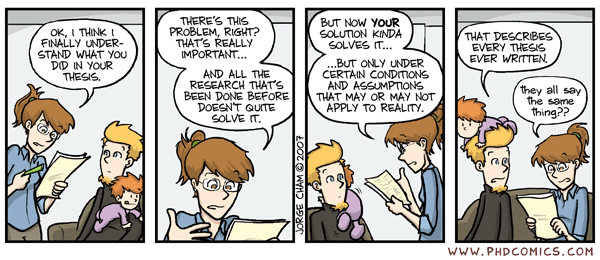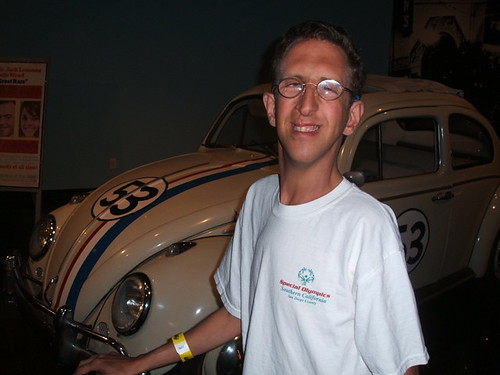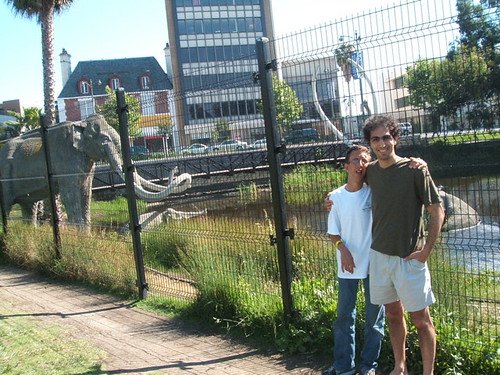As Friday was winding down for most, mine was just beginning. This week, I have been involved in a wilderness first responder course as part of may SAR training, and last night was what they called the 'overnight' component.
It started with a bit of a warm-up, a search for a couple thought to have been at a cabin in the area. We had three teams. One stayed behind with the first response gear, and the other two ventured into the woods following clues. After half an hour of slow, deliberate searching, the radio silence was broken. Crackling over the radio one of the teams called in
The cabin exploded! We need help.
And that was it. Dispatch new the location of the cabin and sent us the coordinates.
My team of three was first on the scene. There were three people hurt. One guy's finger had been blown off and his other arm was broken. Another had second degree burns to his shins and first degree burns to his hands, and was trapped by the smouldering cabin. A third fellow, had serious inhalation burns. After a quick triage, it was clear that he needed oxygen ASAP and radioed to dispatch. Evacuation was also necessary but because of our location and the weather, it wasn't happening any time soon.
As soon as we arrived on the scene, I locked onto the man with the burns on his hands and shins, pulling him from the collapsed cabin. I ran down to a nearby bog and filled zip-lock bags with mud -- cold packs for the burns. When I got back, the fire had spread from the cabin and into the forest around where we were positioned. The smoke in the air was thick, with some odd chemical smells, and it was starting to affect his breathing. If we stayed, it was a matter of time before we both had issues. Despite the pain in his legs, we had to move.
I helped him up and we hobbled away from the danger. The others were also moved. Setting him down, I got him to hold the cold packs on his shins with his hands, and ran back to get our gear, but the fire had spread and I could not recover his.
Refocusing from the lost gear back onto the patient, we started a complete survey of the situation. He was out of danger, for now, but we weren't out of the woods. The pain in his hands and legs was high. The best I could do was offer Ibuprofen. He took some pills, but I don't know what it would really be able to do.
Out of the smoke, his breathing was improving, but it was still laboured. He was feeling sick from the smoke and vomited. I collected a sample and put it in a bag to give to the paramedics upon their eventual arrival. That was when he told me he'd already thrown up before I even arrived on scene.
How am I going to keep him hydrated? I thought as I tied shut the glove used to collect the sample. My thoughts started to spin.
Was it only the smoke that was making him sick? Did he hit his head and not recollect? There were no obvious signs from an examination of his head and pupils, but time might make that story evolve...
His breathing was still a laboured.
Did he inhale more smoke than I'm realizing? Time felt like it was racing by on me.
Where was the first response team? Where was that oxygen?Stop.
Focus.
Do what you can, and keep monitoring for developments.
Since the burns were going to take some time too cool off, I decided to take the opportunity to get buddy up off the ground. Fluid leaking from the burns was dehydrating him, and he needed to be stabilized. I pulled out my camping mattress, an emergency blanket, and a tarp, and got him into a warmer environment. But that wasn't going to stop dehydration. He needed water, as much as he could take. We found, through trial and error, that in small amounts he could keep it down. Slowly he could take more. Soon, he'd be able to eat too.
The first response team arrived, with only one oxygen kit. Clearly the guy with the inhalation burns needed it more. My patient would survive without it, so long as no complications arose. While focusing on my patient, it was clear that the he was not the one in the worst situation. I felt like I was gaining control of the situation, and that things were stabilizing.
And, as though the gods were taunting that illusion of reality, it started to rain. As I focussed on my patient, members of the first response team got busy. Tarps were going up and shelters from the rain were created. The patients were relocated to sheltered areas. Now, the long monitoring was to begin. But we were in a precarious position. We couldn't be evacuated, and the fire was getting worse. We were going to have to move again. After a good talk with my patient, it was clear he was lucid and okay with the idea of me leaving him in the care of someone else, so two of us started scouting for a better place to stay the night. The rain slowed, then stopped, and the exercise ended.
The whole affair started at about 4:30. It was over around 6. And that was the warm up for a sequence of events that lasted (for me) until 5 the following morning.
[... to be continued ...]






 What? You can't tell that's me? Well, here's one where my colleagues are having too much fun bandaging me up:
What? You can't tell that's me? Well, here's one where my colleagues are having too much fun bandaging me up:


 How is it that after a 12-hour day, and when I'm doing my dinner's grocery shop at 7:45 pm, I just happen to choose the line-up where the cashier doesn't know the difference between Brussels sprouts and kiwis?
How is it that after a 12-hour day, and when I'm doing my dinner's grocery shop at 7:45 pm, I just happen to choose the line-up where the cashier doesn't know the difference between Brussels sprouts and kiwis? After overhearing that error in identification (two people in line ahead of me), I realized that I might as well pick up that latest issue of People, and start reading. (Oh, the article about bad bridesmaid dresses.... priceless!)
After overhearing that error in identification (two people in line ahead of me), I realized that I might as well pick up that latest issue of People, and start reading. (Oh, the article about bad bridesmaid dresses.... priceless!)





 Afterward, we had a departmental party which rolled into a birthday party at my house. We had copious amounts of sangria (served in a drawer), home-made meat balls and tiramisu from PG, delicious cakes from Anna, and a wonderful collection of friends to share it all with. Those who left while the buses were still running, while leaving earlier than any wished, made smart decisions because nobody scored a taxi. We had some rather freaky weather Friday night, with snow turning to hail turning to freezing rain and everybody was looking for taxis. One person got through at 1:30 and was told the taxi company would call when they were ready to pick them up. At 2:30 she got through to another company that told her the same thing. At 3:30 the 9 people that were still at our apartment decided to walk home. I did my best to try to assure people they could stay, and when they did decide to leave, I offered them as much rain gear as I could muster to help them stay dry. No taxi company ever called back. I hope they all survived their walks home.
Afterward, we had a departmental party which rolled into a birthday party at my house. We had copious amounts of sangria (served in a drawer), home-made meat balls and tiramisu from PG, delicious cakes from Anna, and a wonderful collection of friends to share it all with. Those who left while the buses were still running, while leaving earlier than any wished, made smart decisions because nobody scored a taxi. We had some rather freaky weather Friday night, with snow turning to hail turning to freezing rain and everybody was looking for taxis. One person got through at 1:30 and was told the taxi company would call when they were ready to pick them up. At 2:30 she got through to another company that told her the same thing. At 3:30 the 9 people that were still at our apartment decided to walk home. I did my best to try to assure people they could stay, and when they did decide to leave, I offered them as much rain gear as I could muster to help them stay dry. No taxi company ever called back. I hope they all survived their walks home.










